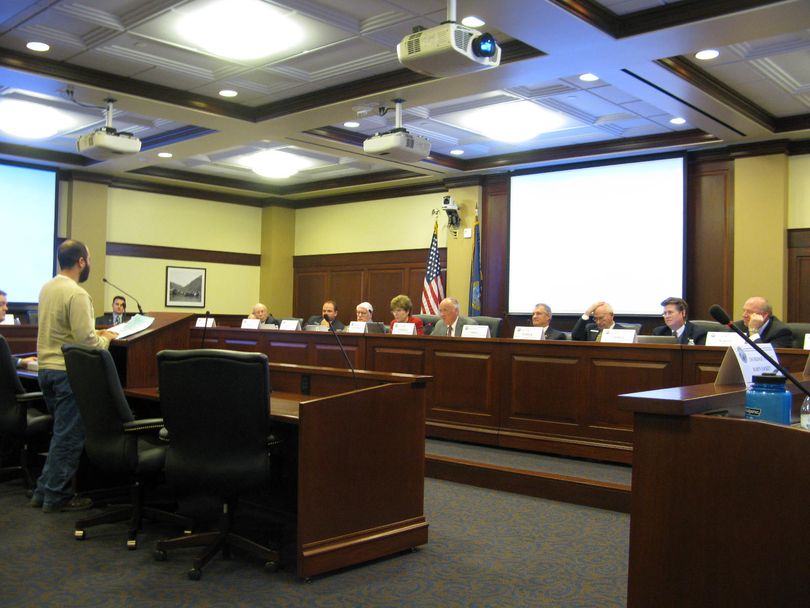State workers tell of qualifying for welfare, a raise that amounted to $34 for the year, pay slipping compared to market…

More than a dozen state workers have signed up to testify to the Legislature’s joint Committee on Change in Employee Compensation this afternoon. Among them: Jake Thibadeau, who has worked as a custodian at Boise State University for the past six years. “We would have an easier job to do if we could keep people on board longer,” he told the lawmakers. “We’re having trouble doing that with the poor pay. Right now we have several positions on my shift that are not filled.” Queried by lawmakers, Thibadeau said he started at $9 an hour, and now, after a promotion, makes $10.58. He pulled out a state-issued card and displayed it. “Right now I qualify for welfare,” he said. “I’m not proud of it, but it’s keeping my kids fed.”
Stephanie Hoffman, a program specialist with the Division of Behavioral Health at the state Department of Health & Welfare, said, “Last year I was excited and grateful when I learned about the raises for state employees, as anyone would be.” But then, she said, “I did the math.” Last year’s 1 percent raises for state workers translated into $34 more for her, she said, after deducting for increases in health insurance premiums and parking fees. “I’m not quite as bad off as those that are taking home less,” she said.
Dave Weidemann, an audit support manager at the state Tax Commission, said he’s worked as a tax auditor for the state for 26 years, and despite receiving exemplary performance reviews, his pay rate has fallen from 97 percent of policy 10 years ago to 90 percent today. The entry-level wage for auditors is now at 68 percent of market rates, he said. “There’s a problem with how we’re funding the pay plan. What happened to the commitment to getting people to market wages within five years of them starting?”
Idaho National Guard Adjutant General Gary Sayler told the lawmakers that compensation for Military Division state employees “has been and will continue to be one of my top priorities.” He said he’d “welcome any CEC increase,” and asked for flexibility to use funds lawmakers may grant both for merit increases and to grant step increases to guard members “who have not seen step increases to match their federal counterparts over the last three years.”
Kimberly Rockey, a certified nurse’s aide at the Idaho State Veterans Home, said she has 15 years of experience and has worked at the home for five years; she’s paid $11 an hour. “I love the guys – they’re wonderful,” she said. “They fulfill my heart, where the pay does not. My paycheck goes directly to car payment, insurance and gas. I have nothing extra to give to my family. We’re barely making it as it is.” She said, “You start feeling unsuccessful when you don’t get fairly compensated for what you do, taking care of our veterans who’ve done so much for us.” Rep. Neil Anderson, R-Blackfoot, who is chairing today’s meeting, told her, “I’d like to say thank you for your service. My dad was a veteran, and I appreciate that, and I appreciate you.”
